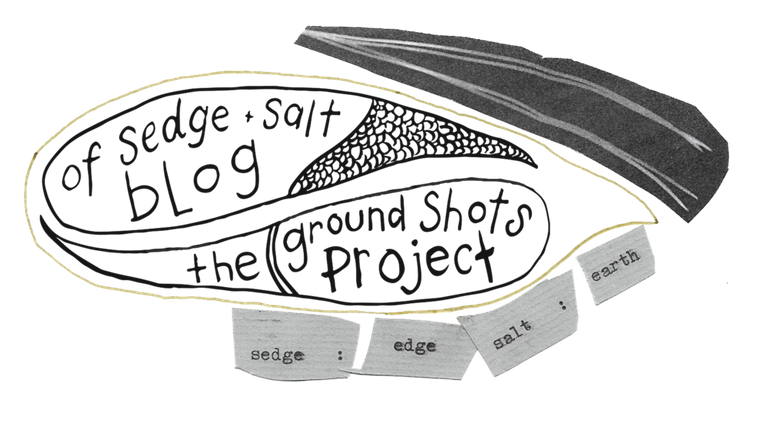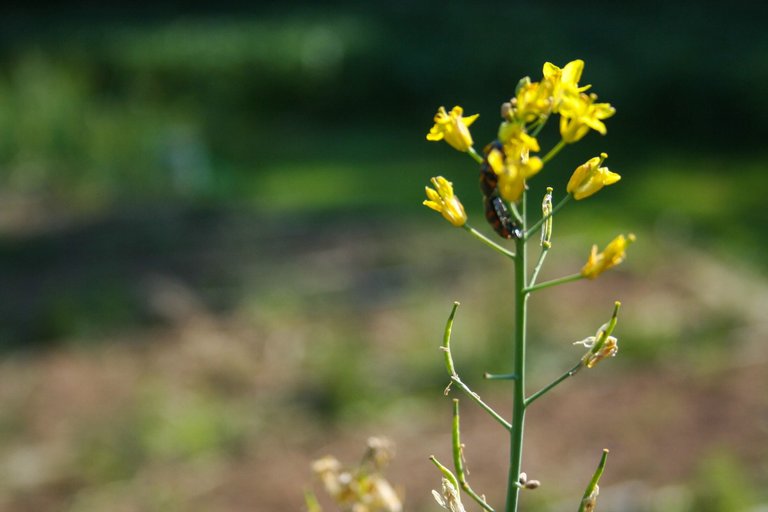I thought I'd share one of my latest podcast episodes on here. I run a podcast called The Ground Shots Podcast which has been going for about 3 years or so. I focus a lot on herbalism and plants, and often the intersections of art and ecology and activism. I'm also a philosopher of sorts, so I tend to take a spider-webbed, what's the bigger picture approach to exploring ideas.

For one, the scientist we interviewed here is from Australia and many of ya'll are on that side of the world and could relate so some of what is talked about, and also, it relates to a topic I'm super passionate about, invasive plants.
I think the invasive plants conversation warrants many posts, shares inquires of its own. The podcast I host and curate has been exploring the topic for awhile, and my partner, Gabe, decided to reach out to a world renowned scientist who is an expert on the matter for this recent episode. *
Angela Moles specifically specializes in evolutionary biology, and how plants rapidly evolve to environmental pressures. Her research supports the idea that, basically, plants can evolve quickly as well as in deep time.
One of the arguments that adamantly defends the hate of invasive plants is the assumption that ecologies take thousands if not millions of years to evolve together, therefore a plant that is introduced is not adept to the situation and will be only harmful. But, this notion has not actually been proven. And, it is also assumed that plants only evolve in deep time, and that ecologies are alway the same forevermore.

Gabe has been conducting research on the history of anthropogenic landscapes, ecology, botany, and ethnobotany, and discovering bias and racism in those fields that have carried into our understanding of human relationship with the land today. This research also inevitably brings one to diving into the science and culture of invasion biology, a fairly new field of study. If you’re a regular listener of the podcast, you know that we have spoken a few times on anthropogenic landscapes and visit the often controversial topic of invasive plants.
**### We spoke about this with Nikki Hill on Episode #33 of the podcast, and on more recently on Episode #53 of the podcast. After diving into this controversial topic and realizing that it is complex and requires looking at a lot of different perspectives, Gabe decided to reach out to Dr. Angela Moles, whose articles he discovered in his research. Angela Moles in an Australian scientist doing research on plant morphology and rapid plant evolution and many of her findings are challenging previously held as true assumptions in the scientific community about the ways certain plants function under certain conditions.

**
Professor Angela Moles is the director of the Evolution & Ecology Research Centre at UNSW Sydney in Australia. Her research aims to improve understanding of plant responses to climate change, and to quantify the ways introduced species change when they are introduced to new ranges. Angela is also a mother, and a surf lifesaver.
In this episode of the podcast, Gabe and Angela talk about:
Angela’s research with the Global Herbivory Project and in evolutionary biology and ecology
how plants and animals can evolve and change faster than we previously though, and Angela’s quantifiable research on this
the change in cultural attitudes towards introduced species in the last hundred years
some history on the Acclimatization Society, which encouraged the introduction of non-native plants from Europe in the 19th and 20th centuries to lands being colonized, as a way to bring familiarity to settlers and with the assumption that this practice enriched foreign ecologies
dogma present in the scientific community
how ecosystems are dynamic and don’t just stay in one place
how difficult it is for scientists to make paradigm shifts
some Australian anthropogenic landscape ecology, fire, colonization
whether it is the invading plants that are the issue or the change in disturbance regimes of landscapes
including native folks in ecology and urban ecology work
the gridlock between the need for assisted migration or ‘natural’ self-led plant migrations due to climate change, and the fear of invasive plants harming ecosystems

Love it - you forgot to post in the ocmmunity but I'll forgive you. Really intersted in listening to a podcast by an Aussie, of course!
the discord channel? it doesn't allow me to post in the sharing area. it says i do not have permission. unless you're referring to another way of posting in the community. as far as I know I cannot post in the natural medicine page unless someone who moderates there shares it? whatever I didn't do right it's because I don't fully understand what to do.
I believe in all what you've said here about evolving of plants because of the climate change. I did observe that since 4 years ago until now.
yes! I appreciate Angela Moles' research on the matter, as many people claim plants can only evolve in deep time. She's also funny and easy to talk to. I hope we can feature her again sometime.
Australians as well as other island nation-states have a greater reason to be concerned about invasive plants, as places like these often don't have natural defenses. I am reminded of tumbleweed in the USA, which is all western cowboy movies, but it's actually Russian Thistle, and it wasn't really abundant back in the wild west days.
@NaturalMedicine supports wellness of body, mind, soul and earth on HIVE.
Come say hi via Lotus Chat or drop by our Hive Community - we'd love to have you!
Indeed islands post unique circumstances for considering the pros and cons of invasive plants. Angela Moles does research on what is actually happening on the ground to measure the plant by plant situation. It's pretty cool, because its easy to make overarching assumptions about all plants deemed invasive in general, especially since there is no consenus on what that is and how to actually measure it scientifically. Some 'native' plants are even called invasive simply because we don't like how the behave, not because they were introduced. If we can't come up with a measurable way to identify what is invasive and how to measure the harm in quantifiable data, we gotta start there. Angela Moles is starting there and it's really good to read her research papers.